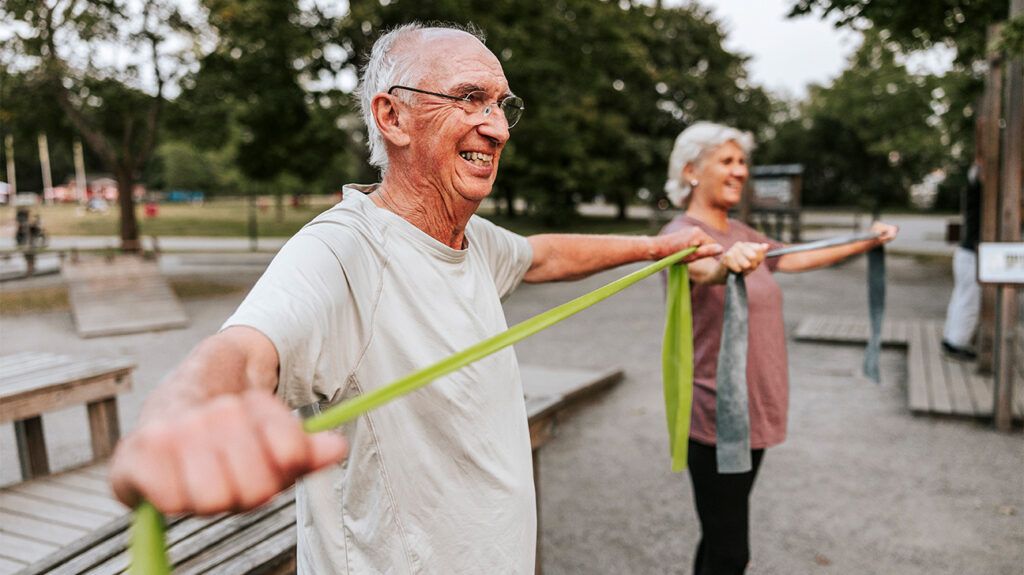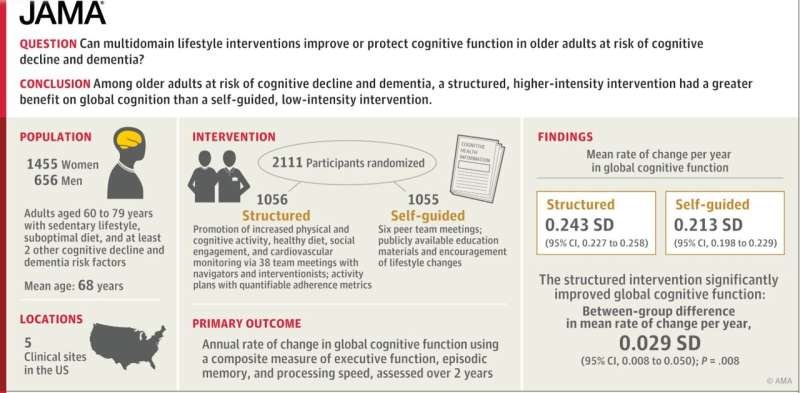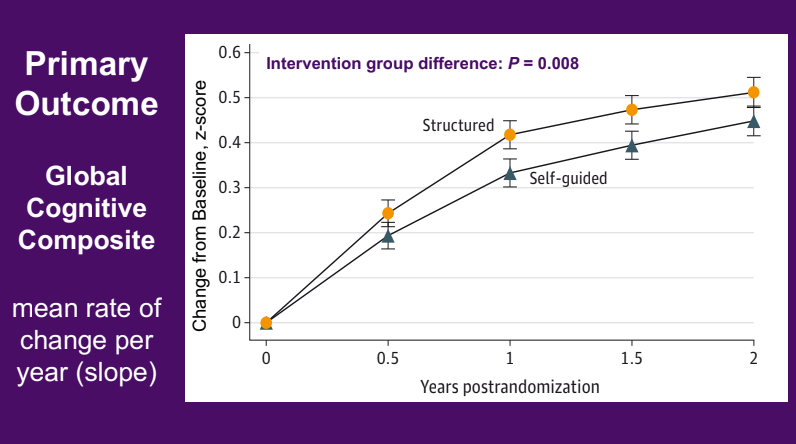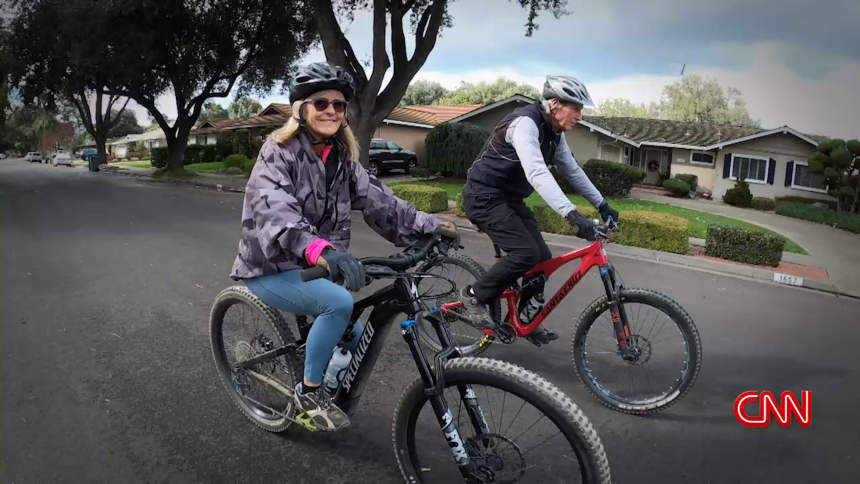
- A program of exercise, nutrition, cognitive and social challenges, and health coaching resulted in improved cognition scores for people at risk of Alzheimer’s disease and related dementias.
- The two-year trial involved lifestyle changes only, without added medications.
- Some participants followed the program self-guided, but those receiving the program in a structured format improved more, though all participants’ cognitive scores improved.
A low-cost, non-pharmaceutical lifestyle program that targeted risk factors for dementia improved the cognitive health of older at-risk adults in a major new trial.
The U.S. POINTER trial was a multidimensional program involving exercise, diet, regular cognitive challenges, social engagement, and health monitoring.
The trial involved 2,111 older people considered at risk of dementia. It compared a structured intervention program to a lower-intensity, self-guided, but similar, program.
Participants in the structured program exhibited significantly greater improvement in composite cognitive scores than the self-guided group after a two-year trial period.
Cognitive scores for both groups improved.
Bridget Stratton of the Alzheimer’s Association told Medical News Today, “U.S. POINTER is important because it was designed as a rigorous, randomized controlled clinical trial to demonstrate whether an accessible and sustainable lifestyle intervention protects cognitive function in diverse populations in communities across the United States.”
“More than 30% of participants were from groups that have been historically underrepresented in dementia research,” Stratton noted.
The results of the U.S. POINTER study are published in
For the structured arm of the U.S. POINTER trial, there were 38 facilitated peer team meetings over two years, with education, goal-setting, and accountability that promoted adherence to the trial’s recommended behavioral interventions.
This aligns with what John Enwere, founder of Caringene, a Seattle-based home care company for older people, who was not involved in the study, has seen.
“I’ve seen clients thrive when a family member or caregiver is both engaging and thoroughly executes their personal care plan,” he told Medical News Today.
For the self-guided arm, there were just six facilitated peer team meetings over two years. Participants were provided educational materials, tools to help track adherence to health plans, and general support that encouraged physical activity, a healthy diet, and cognitive and social stimulation.
“The extra benefit [of a structured program] was observed regardless of sex, ethnicity, genetic risk (apolipoprotein-e4 genotype) or cardiometabolic health (blood pressure, cholesterol, glucose levels),” Stratton said.
Ryan Arnold, MD, founder of Clava Health, who was not involved in the study, noted to MNT that the self-directed group “crucially lacked the dedicated coaching team and physician follow-up afforded to the structured intervention group.”
“This vital distinction,” he added, “underscores how absolutely necessary a team-based approach is for the comprehensive care of patients at risk of, or in the early stages of, cognitive impairment.”
“POINTER’s results affirm that structure and coaching are not just nice to have, they are necessary,” Enwere said.
U.S. POINTER demonstrates that its multimodal approach can work in patients’ family homes with caregivers, but may be adapted for residents at skilled nursing facilities.
Enwere pointed out, however, while care facilities might be able to manage such interventions, “from what I’ve seen, they do not often have the staff ratios or consistency useful in enforcing deep lifestyle changes.”
“For adherence to more complex components — particularly supplementation to guide vascular and metabolic risk factors, and structured physical training — a team-based approach is likely most beneficial,” Ryan noted.
“This team would ideally be physician-led, with robust support from a health coach to reinforce behaviors, and include a similarly informed and guided trainer who is acutely aware of the specific cognitive goals and physical limitations of the individual,” he said.
“The magic occurs,” Enwere said, “when the environment meets the clients where they are, physically and cognitively.”
As to ideal settings, he suggested patients’ homes, community centers, or a hybrid of the two, in order to leverage activities such as senior exercise classes or cooking groups.
Extensive research has been conducted on the causes and potential solutions for Alzheimer’s and related dementias. However, progress has been slow. This may be attributed to a long-standing focus on pharmaceutical solutions for the condition.
It is believed there are multiple pathologies that lead to ADRD, and thus, as the authors of the U.S. POINTER trial assert, “There is a critical need for interventions that target several risk pathways simultaneously.”
A recent
“The pharmaceutical approach to Alzheimer’s has, regrettably, been largely disappointing, mired by the recent retraction of several studies due to fraud concerns, and overall showing negligible improvement or minimal impact on prevention or progression and the associated high incidence of complications and side effects, brain bleeding being one of them,” Arnold said.
“My professional stance on treating Alzheimer’s from a non-pharmaceutical angle is one of strong support and profound optimism,” he added.
“There is certainly a time and place for medications, but only in certain stages. Medications do not address the underlying behavioral or vascular aspects of decline, a decline that can be made worse by medications.”
— John Enwere
Arnold asserted the U.S. POINTER results, “reinforce the core functional and integrative medicine principle of simultaneously addressing multiple contributing factors to health and disease.”






